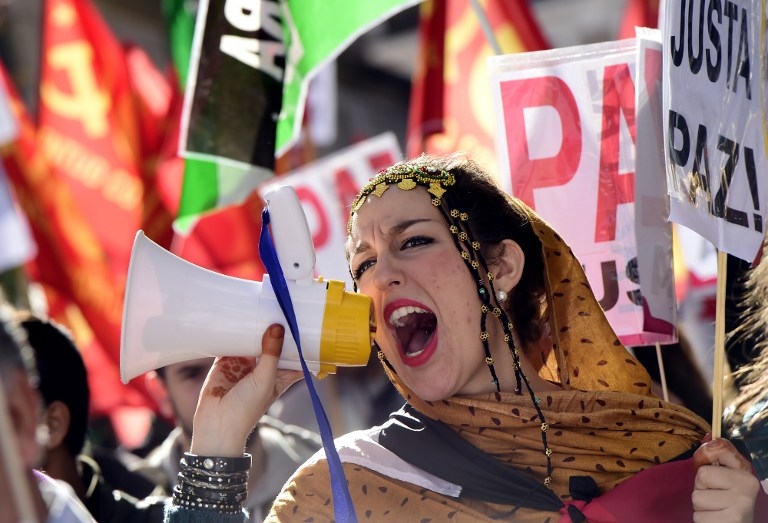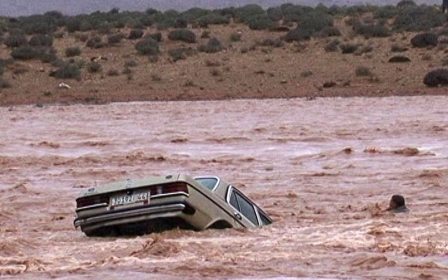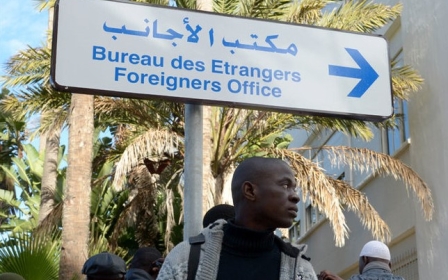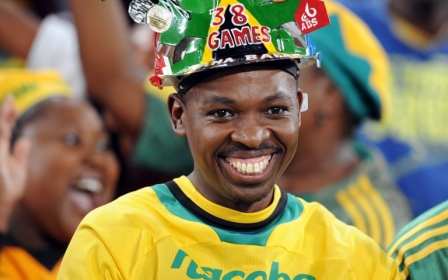Morocco rights groups boycotting Marrakech meeting

Morocco is to host an international human rights summit on Thursday that its government says is “recognition” of its human rights advancements since mass protests roiled the country in 2011.
But several seats at Thursday’s conference will remain empty. A total of eight Moroccan rights groups have pulled out of the World Human Rights Forum, a major gathering of activists from around the globe, in protest at growing restrictions on their activities by Moroccan authorities.
The groups’ decision to shun the event, along with claims by the international human rights group Amnesty International that its activities have also been curtailed, has dented the credibility of the forum and refocused attention on the north African monarchy’s efforts at reform.
More than 5,000 people from 94 countries will meet in Marrakesh on Thursday – the largest such international gathering Morocco has hosted in years.
Politicians are lauding the hosting of the World Human Rights Form as a marker of progress and a sign of growing international support for the monarchy of King Mohammed VI.
“It represents international recognition of our achievements, of our reaching out to human rights and civil society organisations,” Omar Hilale, Morocco’s UN ambassador told Morocco World News.
All about image
But activists have dismissed the conference as a scheme by an autocratic nation to polish its image.
“We still have hundreds of political prisoners. Press conferences, cultural events, human rights camps, protests, all these are pretty much banned. Is a regime like that an appropriate host for a human rights forum?” asked a Moroccan activist running a Twitter campaign against the conference, who did not wish to be named.
“Hosting a world forum on human rights in an authoritarian state only helps it cover up its own violations,” said the activist.
Shortly after mass protests hit Morocco in February 2011, the government stepped in, easing the unrest with a series of top-down reforms and a new, more democratic, constitution that includes many protections of human rights.
Despite the new constitution, opposition figures and analysts argue that the country is sliding backwards; that with quiet on the streets a rollback of rights is under way.
“There’s a trend we’ve seen on the rise since the summer which is basically a ban on public events or meetings in public spaces,” Sirine Rached, a Moroccan analyst with Amnesty International, told Middle East Eye.
“Morocco has a relatively progressive legal code which isn’t always respected in practise by local authorities. There is still self-censorship, journalists being prosecuted, associations refused registration … It’s time to lift these restrictions, that way the summit can be a genuine opportunity for the country and not only a talking shop,” said Rached.
Rached said that Moroccan authorities had recently banned Amnesty’s annual Youth Camp for the first time in 16 years despite the organisation complying with Moroccan legislation when preparing the event.
Moroccan authorities have, according to Human Rights Watch, blocked more than 15 meetings that the Moroccan Human Rights Association, a leading rights group, has tried to hold around the country since July 2014.
The recent curtailment of rights groups and their freedom to operate resembles a similar clampdown taking place in Egypt where NGOs face restrictive new laws.
In July Morocco’s Interior Minister, Mohamed Hassad, in a speech on combating terrorism, accused human rights groups of filing baseless allegations of abuses perpetrated by the security forces in a way that could harm Morocco’s image and security.
“Some domestic associations and entities work under the cover of defending human rights … in an attempt to drive some of the international organisations to take hostile positions towards Morocco’s interests”. Hassad said these interests included “its territorial sovereignty”, an apparent reference to Morocco’s disputed territorial claim over Western Sahara.
On Saturday, Moroccan authorities expelled two Americans from the disputed Western Sahara territory, which was annexed in 1975, after they met with a local activist, saying it violated the provisions of their tourist visa.
Despite boasting a relatively prosperous tourism industry, 30 percent of Morocco’s population is 15 to 29 years old and roughly half the youth population is unemployed, with some studies suggesting that up to 90 percent of young women and about 40 percent of young men who are not in school are without work.
New MEE newsletter: Jerusalem Dispatch
Sign up to get the latest insights and analysis on Israel-Palestine, alongside Turkey Unpacked and other MEE newsletters
Middle East Eye delivers independent and unrivalled coverage and analysis of the Middle East, North Africa and beyond. To learn more about republishing this content and the associated fees, please fill out this form. More about MEE can be found here.




